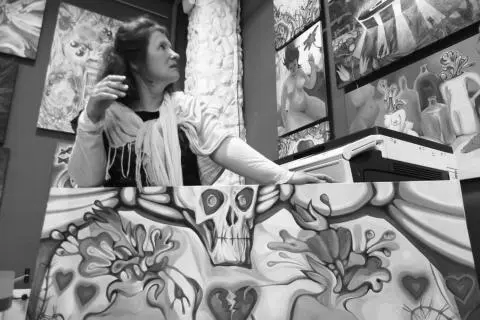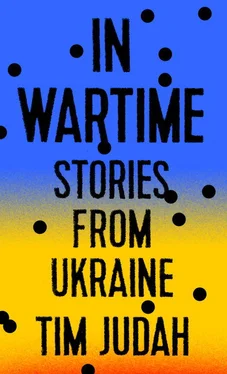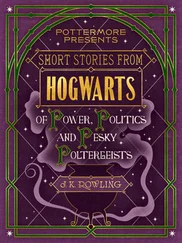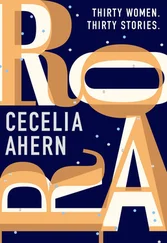Sitting in French Guyana poring over his computer night after night, Castel had clearly become obsessed with Ukraine. He collaborated with others to “prove” that the anti-Maidan activists who had died in the infamous fire in Odessa on May 2, 2014, had been killed in a conspiracy, and not because both sides had thrown Molotov cocktails at one another and the anti-Maidan activists had been trapped inside the building. He was excited. The old world was collapsing, the oppressed were rising up against the evil empire—America—and he had come to play his small role in ushering in the age of revolution. “I want to participate,” he said. “It is important for the Russian and Slavic worlds to see that there are people who support them.”
For Castel, the rebel Donbass cause is a noble crusade, which he has joined with the zeal of those foreigners who once flocked to the cause of the Spanish Republic. Everything he told me and believes about Ukraine has been said by the Kremlin’s propaganda machine, but anything that counters this narrative is regarded as Western propaganda serving the interests of the American military-industrial complex. What he believes is widely believed in Russia, of course, because it is the party line followed by most of the media. However, millions of Westerners also share all or some of his beliefs. They are the point where the worldview of the extreme right in the West meets that of the extreme left. This is why among the foreigners fighting for the rebels in Ukraine there are modern-day fascists ranged alongside extreme leftists who believe they are participating in a new and glorious communist revolution. In this ideological confusion communist flags fly alongside ones depicting Christ. There is no inkling that maybe Putin believes in none of this and in one thing only: power.
A few weeks later Erwan posted on his blog that he had been offline for two weeks because he had been on a reconnaissance mission. He discussed how the militias of the two would-be republics were being turned into conventional armies and were an example to the peoples of Europe who wanted to liberate themselves from American hegemony.
In the spring of 2015, a year after the war began, the UNHCR, the arm of the United Nations tasked with caring for refugees, estimated that 1.25 million people from Donbass were displaced within Ukraine and 822,700 had fled abroad, mostly, but not only, to Russia. This meant that from the area held by the two separatist republics in which some 4.5 million had lived before the war, more than 2 million had left. Whatever happens, many, if not most, of them will never go back, especially if the conflict drags on or freezes in such a way that the region remains what it has already become, one with little real functioning economy.
Four of those who left are from the Yemchenko family, whom I first met before they fled.
On April 17, 2014, Olena Yemchenko came to the last pro-Ukrainian rally in Donetsk. She was forty-three years old, born in Taganrog in Russia, of mixed Russian and Ukrainian background and had lived in Donetsk since the age of seven. Some 2,000 turned up to the rally, which was guarded by serried ranks of black-clad riot police. I told Olena that I thought this was not an impressive turnout for such a big city, but she said she was very happy that so many had come because all day, rumors had been coursing through social media that the rally would be attacked by separatists, so many had been too frightened to come. At a clash between pro-Ukrainians and pro-Russians in March, one pro-Ukrainian had been killed.
As we talked, a giant Ukrainian flag was passed over people’s heads and the crowd chanted “ Slava Ukraini! ,” “Glory to Ukraine!,” and “We will not give up Donbass!” Oleh Lyashko, the leader of a small nationalist party, said that Ukraine faced “the choice of shame or war and I am for war.” One man held a handmade poster with a picture of a baby wearing a vyshyvanka , a shirt decorated with traditional Ukrainian embroidery patterns. Underneath, the man had written: “Uncle Putin, why are you so grumpy?” Behind the stage stood several lines of riot policemen. In between the police and the back of the stage was a small playground in which mothers and small children swung happily on gondola swings.
A few days later Olena came to collect me. She had a small Ukrainian flag on the dashboard of her car, which was surprising, as the war was already beginning and showing public support for Ukraine in Donetsk seemed a dangerous thing to do. Olena is an artist but made her living as an interior designer. Her brother, with whom she and her husband, Artyom, aged forty-two, shared an office, ran an advertising and web design company. While we talked Artyom browsed through designer teapots online. He had four shops in town called “Cozy Home,” selling upmarket goods for the home to Donetsk’s small but until then growing middle class.
On the walls of the office were several of Olena’s canvases including some of busty, headless women adorned with old election catchphrases of former president Yanukovych—“prosperity” and “stability.” They also featured skulls, hearts and broken hearts. She said that the women represented her view that in Ukraine only 10 to 15 percent of people actually think, while the rest “just exist.” Then she added that maybe this was the same in the rest of the world.
Olena and Artyom had been active supporters of the small pro-Maidan movement in Donetsk. They had come to its rallies and done shifts at the protests to keep it going. Olena’s particular contribution was to paint a picture at the demonstration camp while people watched her. Like in Kiev, some of the anti-Yanukovych protesters stayed after he had fled, wanting to keep going until the presidential election, which was scheduled for May 25. It was not to be. On March 1 a small group of fifty to a hundred people, recalled Olena, came to clear them out. “They had strange flags, including Russian imperial ones.” They were well organized and several had walkie-talkies, while others had clubs studded with nails. They shouted “ Banderovtsi!” at the Maidan protesters and “Berkut,” the name of the Ukrainian riot police, many of whom had just returned home from Kiev as heroes to anti-Maidan easterners. Olena complained to some police who were sitting in their car watching what was going on, but it rapidly became clear that they would do nothing. So, the leader of the Donetsk Maidan group made a decision. “We had better go, or we will all be killed.”

Olena Yemchenko, artist. Donetsk, April 2014.
In her office Olena had photos from exhibitions she had organized. She complained of Ukraine’s endemic corruption. She and her colleagues had been awarded a grant from the Ministry of Culture in 2013 for an exhibition, but most of the money never arrived because it was stolen. She described how she got around this problem. She had a wealthy client who had prospered in the last few years. “My task is to take his money and use it wisely,” and in this, she laughed, there was “no dilemma.” That meant she used some of the money to live off, but the rest was to plug the hole left by the theft of money she was supposed to have gotten from the state to fund the exhibitions. In that way she was part of a chain laundering money, but in her case the cash went back to where it was supposed to have gone in the first place. “For my whole life,” she said, “people have been robbing us.”
A few days later, Olena called. The window of her car with the flag had been smashed. A friend had told her that from now on, the only place for Ukrainian flags to be flown in Donetsk “was on tanks.”
Читать дальше













